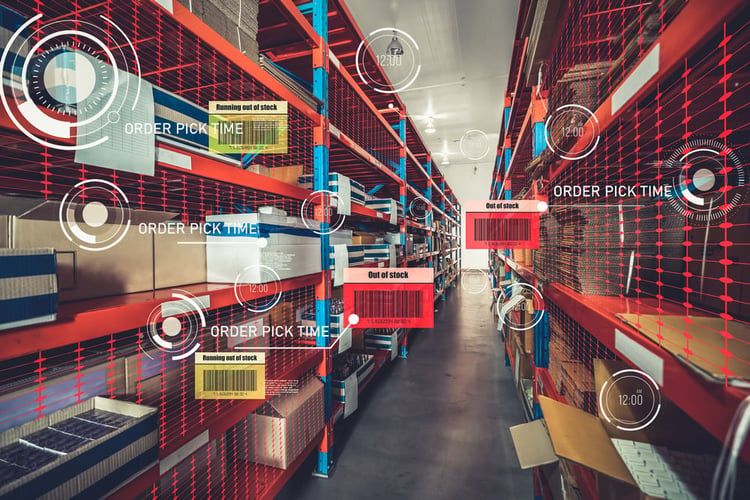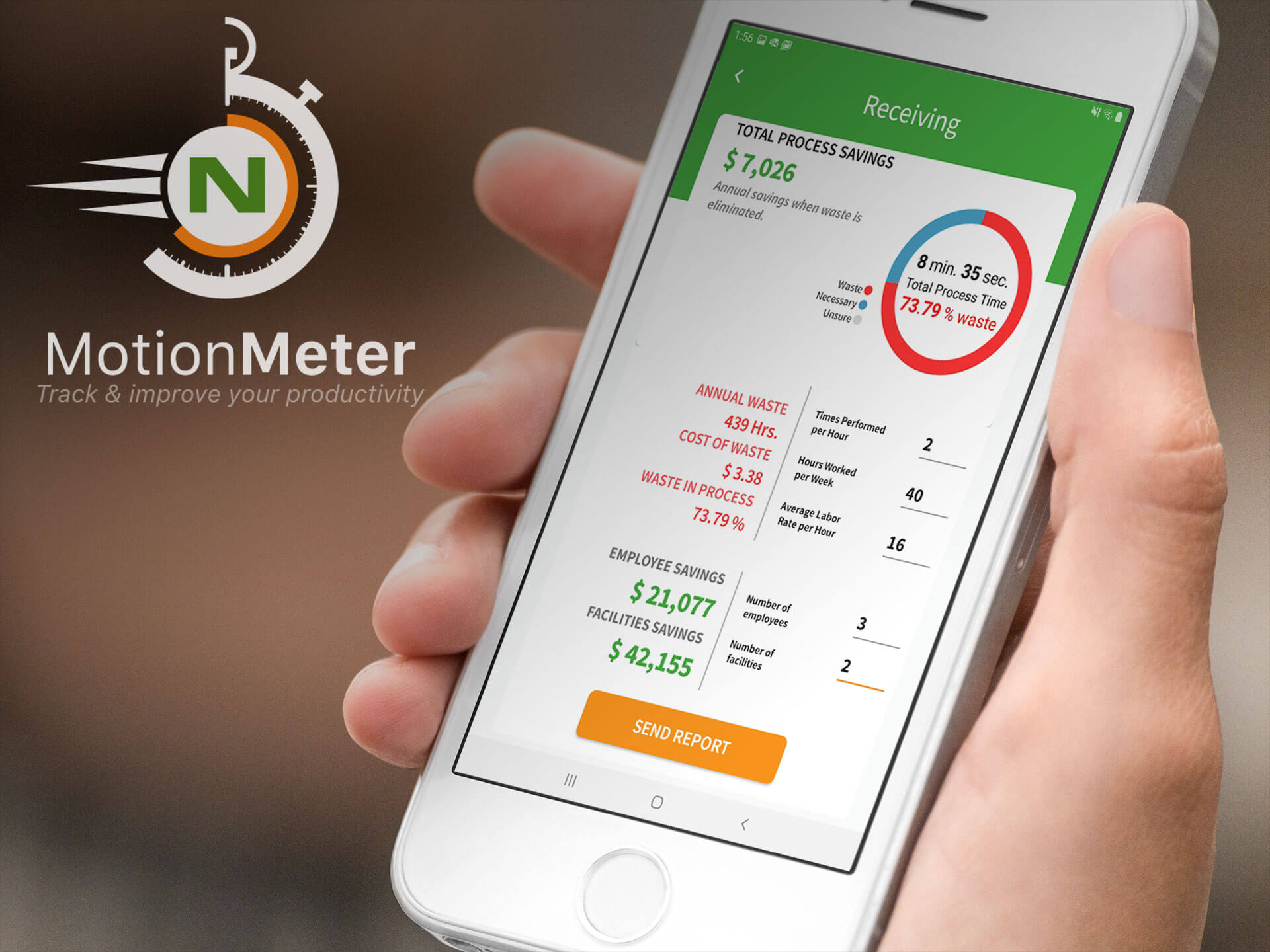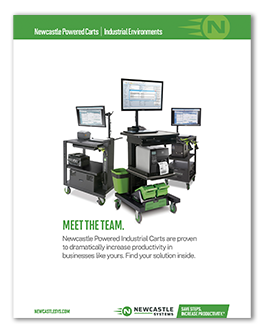
The COVID-19 pandemic had an unprecedented impact on the global supply chain. At the same time eCommerce activity has exploded, logistics companies have struggled to combat ongoing challenges. Some of the things that continue to plague distribution leaders include longer lead times, uncertain inventory capacity, and increased fulfillment costs.
So the question becomes: How can supply chain participants manage these risks and improve their results simultaneously? Many businesses are investing heavily in automation solutions. But these tools aren’t for everyone. Here is how you can combine some basic warehouse technology solutions with something called Account-Based Marketing (ABM) to make your business’s efforts more impactful.
What is Account-Based Marketing?
Account-based marketing (ABM) is a strategy that aligns sales and marketing efforts to focus on accounts instead of lead volume to improve the entire customer experience. To understand how this works, it’s helpful to compare it to inbound marketing, which focuses efforts on generating leads with compelling content and offers. Inbound marketing seeks to attract a high volume of relevant traffic to click through to a designated landing page, yet only a small percentage convert to paying customers.
With ABM, more energy, time, and focus are placed on different stages of the customer experience, including lead generation, conversion, and post-sales support. Businesses that use ABM will focus more on accounts that are likely to generate revenue instead of spending less on a wide variety of leads. ABM also emphasizes building lasting relationships with clients, which increases their lifetime value.
The Benefits of Account-Based Marketing for the Supply Chain Industry
Some industries tend to serve a wide range of audiences and markets. So it makes sense for them to toss out a wider and more general marketing net to capture business. But supply chain companies tend to have a more narrow pool of prospects, making the customized marketing strategies used by account-based marketing an ideal option. Some of the benefits of using account-based marketing in logistics include:
Diversification of Suppliers
One of the most significant weaknesses exposed in the global supply chain is its lack of diversity, which has created major bottlenecks for some businesses. Using ABM, logistics companies can start expanding their pool of quality suppliers and grow quality, long-term relationships with those partners.
Shorter Sales Cycle
When your sales team is targeting just a few accounts to close deals, they can be much more selective about focusing their efforts on moving those clients through the sales cycle. ABM has been shown to shorten the sales cycle because it is personalized to each client.
Personalized Messaging
Before the pandemic, there seemed to be a lot of secrecy about what was going on behind the scenes with supply chain businesses. This is changing rapidly as more partners and customer demand transparency. ABM not only offers clients transparency but also personalized messaging and marketing campaigns, so a business gets exactly the information it needs or wants the most.
Improved Reporting
 Companies can sell products that they don’t have, and business partners hate having to guess where items are in the supply chain. ABM provides clients with enhanced insights and reporting that deliver a better client experience. Partners and customers can see what’s in stock and what’s moving through the system, helping them make more informed business decisions.
Companies can sell products that they don’t have, and business partners hate having to guess where items are in the supply chain. ABM provides clients with enhanced insights and reporting that deliver a better client experience. Partners and customers can see what’s in stock and what’s moving through the system, helping them make more informed business decisions.
Scalable Acquisition Strategy
Anytime a process uses data to personalize and automate a strategy, it’s scalable. Much of ABM can be automated using various technology solutions, which frees up the sales team to nurture leads that get to a certain point and service existing accounts.
Better Marketing and Sales Alignment
In too many organizations, there isn’t much alignment between sales and marketing. But, with ABM, the teams are more aligned in creating the content and strategy that will reach each client in the most effective way possible.
Stronger Customer Retention
When your clients know that you care about their particular needs and goals, why would they take their business somewhere else? It’s a known fact that it costs more to acquire a new client than it does to retain an existing one. With ongoing account-based marketing efforts, much of which can be automated, your customer retention rates and customer lifetime values will soar.
Combining Account-Based Marketing with Warehouse Automation
Warehouse automation tools aren’t for everyone—not every facility or business needs these tools. Make the most of your marketing efforts by pinpointing your target audience and gearing your work toward connecting with a more qualified target audience. When you fine-tune your sales pitch toward one business—or even just one department within that business—you can make your marketing efforts that much more impactful.
What does ABM have to do with warehouse automation? Interestingly, ABM wasn’t much of an option in the past. To be able to identify the right accounts and target them effectively, you need access to significant amounts of relevant business and behavioral data, which wasn’t available even five years ago.
 Warehouse automation solutions can provide access to some of the data you need to implement effective ABM strategies. For example, using RFID tags for inventory and asset tracking is one way to improve visibility for your customers and business partners. When combined with a CRM or ERP system, your business can track various metrics such as:
Warehouse automation solutions can provide access to some of the data you need to implement effective ABM strategies. For example, using RFID tags for inventory and asset tracking is one way to improve visibility for your customers and business partners. When combined with a CRM or ERP system, your business can track various metrics such as:
- Engagement data
- Sales cycle data
- Retention rates
Most warehouses rely on making fewer deals for larger sums of money to achieve their goals. This business model is ripe for ABM since it allows for a more customized approach to marketing that can attract and retain key clients.
In short, you don’t have to invest in an army of robots to get the most out of warehouse automation solutions or deliver a better customer experience. Today’s customers and supply chain partners want your business to be more accessible, transparent, and reliable. You can achieve these goals by implementing solutions like RFID tags and other personalized account-based marketing strategies that give clients what they most desire, both pre- and post-sale.












